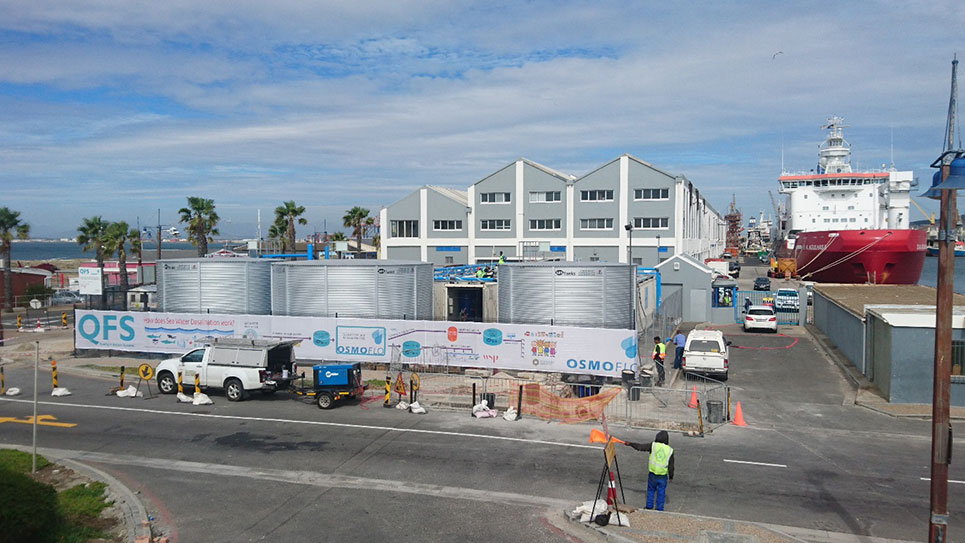The seawater that feeds into the desalination plant at the V&A Waterfront is sometimes up to 400% more polluted than the specifications handed down to the company contracted to build it by the City of Cape Town, it has been found.
Speaking to News24, Musa Ndlovu, Director of Quality Filtration Systems (QFS), said that the company had been awarded the tender when the Mother City was still facing the threat of Day Zero last April, when the drought was still affecting the Western Cape.
Once GFS became aware of the high levels of pollution in the seawater (the feedwater), it reportedly cost the company millions to make the necessary modifications to the plant to handle this.
“The City gave us tender data about the feedwater – everyone that tendered had to work off the same data, not do their own tests – and we designed a plant accordingly. Then when we did tests during commissioning of the plant, we found contaminants that were not in the tender data,” Ndlovu said to News24.
An additional R7 million was spent installing equipment to ensure that the water the desalination plant filtrated would match up to national drinking water standards.
“400% [over the specifications] is abnormal. We realised the variation was caused mainly by raw sewage – which the City itself puts into the sea. They didn’t disclose that in the tender specification data, otherwise we would have designed a plant fit for that purpose,” she said.
QFS is well-known for treating water contaminated with sewage. It built the country’s first direct reclamation plant in Beaufort West, producing more than 2.3 million litres of clean drinking water from contaminated water every day.
“It was never a requirement for us to treat sewage contaminants. We had to spend our capital on treating the 400% abnormal feed water variation. Our plant always produced compliant water. The City has never questioned that. The City, however, decided not to compensate us for our plant upgrade and the high operating cost caused by them dumping sewage into the ocean,” Ndlovu said.
The City gave permission to QFS to inject the desalinated water into the system on May 28, but only covered 25% of the 2 million litres produced.
According to Managing Director Herman Smit, the City was aware of the additional pollutants when it requested that QFS conduct a “full spectrum” analysis.
“This is the only reason they delayed injection into the network. In retrospect they were very scared to accept final water as a result of the raw water sewage contamination, but never divulged knowledge thereof,” Smit said.
Picture: QFS

